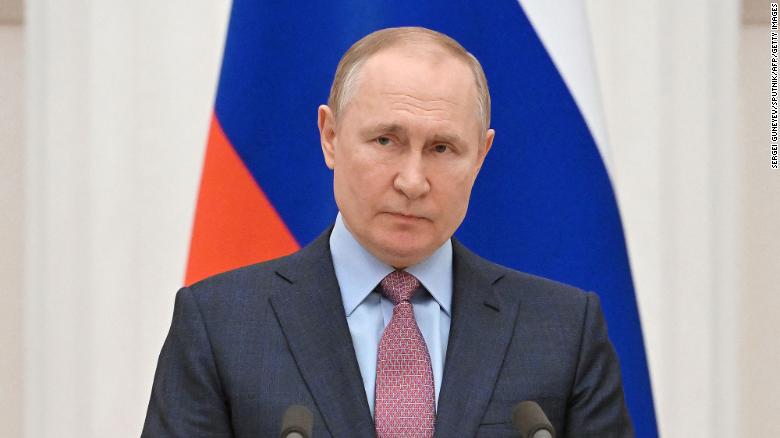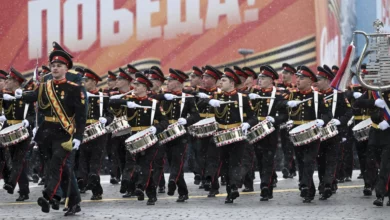
(CNN) – If the last two years have shown us anything, it’s that America’s strength depends on its international alliances.
The twin shocks of the Covid-19 pandemic and Russia’s war on Ukraine have exposed the pitfalls of former President Donald Trump’s so-called America First policy, which was premised on the idea that working with our allies requires the United States to contribute more than what we gain in return.
The pandemic revealed that the only way to handle a devastating virus in an age of global movement is through international coordination and cooperation. Sharing valuable research on the virus and information about caseloads or new variants, not to mention working across borders to distribute vaccines, have all been crucial to the fight against the pandemic.
And with Vladimir Putin waging war in Ukraine, the US has worked in concert with its allies to apply immense economic pressure on Russia and provide military support for Ukraine. The fact that an attack on any NATO country bordering Ukraine would trigger a fierce response from other members of the alliance remains an important check on Russia’s territorial ambitions.
Today, we are seeing a revival of support for the international outlook that President Harry Truman promoted during the early Cold War. Of course, this support is less about ramping up military spending or committing US forces to fight against communist expansion around the globe, and more about his insistence that international alliances were crucial to US diplomatic and military success.
With the bipartisan support of key Republicans such as Sen. Arthur Vandenberg of Michigan, Truman was able to forge ahead with his vision of liberal internationalism. When the United Nations was established in October 1945, the US became a key participant in the international body committed to achieving peace and strengthening global cooperation.
The Truman administration also invested in growing a State Department filled with first-rate diplomats who could offer their expertise and foreign policy assessments. In 1949, the US also joined the North Atlantic Treaty Organization with Truman stating his hope that the alliance would “create a shield against aggression and the fear of aggression.”
Liberal internationalism offered a powerful model for handling threats overseas. The political scientist G. John Ikenberry, a colleague of mine at Princeton, famously argued that the US succeeded in solidifying its power by working to craft stable and cooperative international institutions that limited the power of participants — including its own — in ways that were advantageous to all members.
Liberal internationalism was certainly far from perfect. After all, it was under this approach that the US went down the disastrous path of Vietnam. But the Vietnam War did not totally discredit the virtues of Truman’s vision. In many ways, President Lyndon Johnson’s greatest failure was ignoring key elements of this strategy — and rejecting the French President Charles de Gaulle’s proposal to accept a negotiated settlement, for example — in favor of militarism.
For decades, Truman’s vision has come under continued attack. During the 1950s and 1960s, right-wing extremists railed against international institutions as some sort of liberal conspiracy to undermine America’s strength. Robert Welch, the founder of the conspiracy-driven John Birch Society, once claimed that NATO was a Communist “hoax.”
In the 1990s and early 2000s, criticism of NATO grew among conservatives who claimed that other countries took advantage of the US by forcing it to shoulder too much of the financial burden (Some liberals, on the other hand, argued that the expansion of NATO was provocative to Russia after the Cold War had come to an end.) After the strong show of international support for the US after the horrific attacks on 9/11, President George W. Bush decided to launch a war against Iraq in 2003, despite the opposition of key allies. Bush also dismissed international agreements, such as the 1972 Anti-Ballistic Missile Treaty and the Kyoto Protocol, as unnecessary inhibitions on US policymakers.
Then Trump revived America First arguments out of the far-right shadows and directly into the Republican mainstream, which included his ongoing criticism of NATO and warm relationships with adversarial leaders such as Putin. “The United States is spending far more on NATO than any other Country,” Trump tweeted before a summit in 2018. “This is not fair, nor is it acceptable.” To be sure, there have also been those on the left who have also attacked these institutions as well, sometimes from the perspective that they prop up powerful economic interests.
But the past few years have reminded us of the steep costs that come from going it alone. Working without alliances can often leave the US much weaker as a nation and without crucial resources that we need to contain serious and dangerous national security threats.
At a time when autocratic governments around the world are gaining strength and Russia and China appear to be forging closer ties, US policymakers must remember that alliances like NATO are greater than the sum of their parts. This has always been true in international affairs, and rarely has it been as urgent as it is today when we face so many threats that transcend national boundaries.




